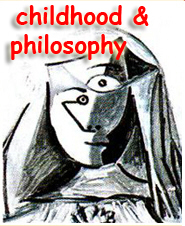the inspector, an investigator: police signals at the educational institutions of the province of mendoza in the late nineteenth century
Keywords:
Policía escolar, Instructor popular, Inspector, Conferencias Pedagógicas, Informes. C. N. Vergara.Abstract
In the City of Mendoza, around 1883, the newspaper El Instructor Popular published a new column in the "News" section called “The School Police.” The newspaper itself displayed a significant contextual knowledge and understanding of provincial education, and identified places and practices that helped to define "education" in an emergent system, more specifically the installation of a “Secret Inspector,” who replaced the Municipal Commissions in controlling what teachers were allowed to teach. The Inspector also regularly intervened in educational institutions to count the bodies that inhabited them. How did the Inspector take on these roles? What were the parameters defining the function of the Inspector? He controlled the Mendozan insitutions by writing reports on the progress of their educational plans, and the development of curricula, and the use and distribution of subsidies. These reports were published in El Instructor. The links between spaces and practices shaped the limits and conditions of this "Secret Inspectors" who was considered one of the pillars of the Argentine education system as it emerged in the late nineteenth century. The newspaper brought together both conventional and and rebellious voices, and both transformative and disruptive positions. Although the Inspector was expected to function both as vigilante and police, it was he who inquired, innovated, and intervened in three dimensions: teaching methods, self-government, discipline and school administration, and he did so through the introduction of conferences. This led to a collective practice of co-education in dialogue between teachers, managers, supervisors and students. He made visible the roles of teacher, observer, political, leader, adviser, auditor, trainer and reporter, and he opened a new space which led to other possibilities for teaching practice understood as "educational research".Downloads
Download data is not yet available.
Downloads
Published
2015-01-30
Issue
Section
articles



